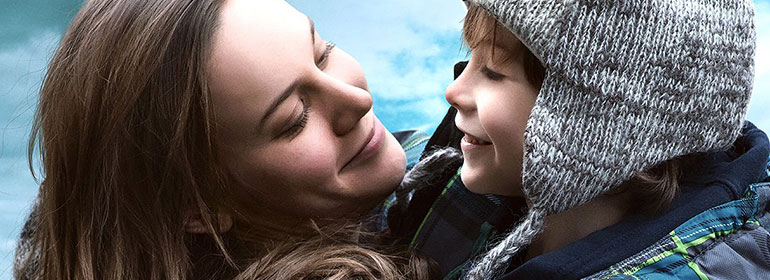On the surface ‘Room’ may be about the depravations of captivity and the complexity of its aftermath, but Lenny Abrahamson’s masterful film tells a universal story that’s deeply rooted in all our experiences, says Brian Finnegan.
Emma Donoghue’s novel, Room was a departure for Ireland’s premiere lesbian author in several ways. It was the first she told from a child’s perspective, and it didn’t involve sexuality as a core component of the narrative. A deep psychological exploration of the relationship between mother and child, it took its narrative drive from the Fritzl case in Austria and the Jaycee Dugard story in California, both of which involved the birth of children to women in captivity, fathered by their captors. Donoghue’s initial drive was to delve into the complexity of experience on both sides of captivity – during and afterwards.
 Narrated by five year-old Jack (Jack Tremblay), Room opens in the squalid shed he was born in, which is his whole world. To protect him from the harsh reality of their captivity, his mother, ‘Ma’ (Brie Larson), kidnapped by ‘Old Nick’ when she was 17, has led Jack to believe that ‘room’ is the only world that exists. The skylight that gives them light is a view of outer space; the fuzzy pictures on their television a fantasy. But in an effort to get Jack to help them escape, Ma has to reveal the truth of a reality beyond ‘room’, and when they do finally find their way out into the wide world, Jack has to confront that frightening, uncontained reality.
Narrated by five year-old Jack (Jack Tremblay), Room opens in the squalid shed he was born in, which is his whole world. To protect him from the harsh reality of their captivity, his mother, ‘Ma’ (Brie Larson), kidnapped by ‘Old Nick’ when she was 17, has led Jack to believe that ‘room’ is the only world that exists. The skylight that gives them light is a view of outer space; the fuzzy pictures on their television a fantasy. But in an effort to get Jack to help them escape, Ma has to reveal the truth of a reality beyond ‘room’, and when they do finally find their way out into the wide world, Jack has to confront that frightening, uncontained reality.
Lenny Abrahamson’s multi-Oscar nominated film adaptation of Room, achieves the telling of Jack’s reality shift with alacrity, barely putting a foot wrong. Donoghue came on board to write the script, and the translation of her story from page to screen shows a real talent for the medium. She wisely gets rid of much of the central section of the book, focusing instead on Jack’s relationship with Ma in the first half, and his negotiation of new relationships in the second. The result is a lean film that for the most part eschews any temptation to flip into sensation or melodrama, and – apart from a scene involving an impossibly cute dog – barely allows a hint sentimentality to surface.
Brie Larson’s Best Actress nomination is well deserved, but the film is carried by Tremblay, who is so credible as a five year-old whose whole world is being blown open, you can literally see the other actors revolving around the power of his performance. The chemistry between him and Larson is achingly real, as it is with Joan Allen as his grandmother, and Matt Gordon as her partner.
While trapped in ‘room’, Ma created the world for Jack, and although the realities of such a world are horrific, their confinement is the warm, beating heart of Abrahamson’s film. Jack yearns for the simplicity and familiarity of the life he left behind in ‘room’, and it resonates because in a way it’s what we all yearn for at our cores, the return to the cocoon of mother-bonding. In that, Room is more about the universal experience of leaving childhood behind than the horror and depravations of captivity and its complicated aftermath. At the end, Jack and Ma return to ‘room’ for one last visit, and it’s Jack who tells Ma she must let go. It’s a coming-of-age moment that can’t fail to move on a cellular level.
Abrahamson, Donoghue, and Room’s producers and cast have created a timeless classic that speaks to the human heart, but never exploits it.
‘ROOM’ hits cinemas on Friday, January 15.
© 2016 GCN (Gay Community News). All rights reserved.

comments. Please sign in to comment.